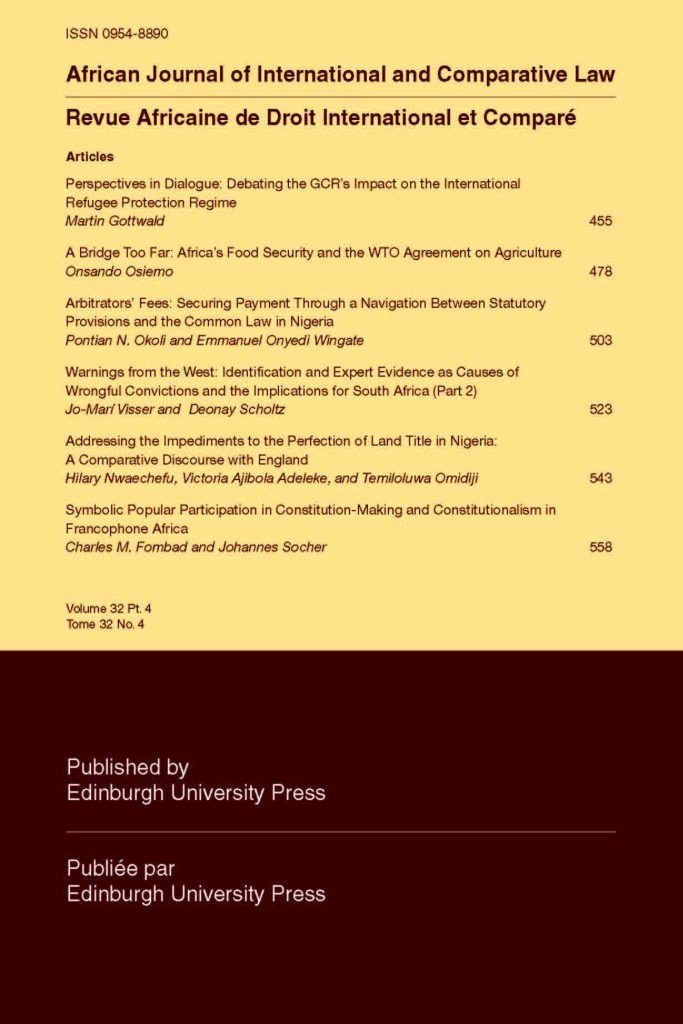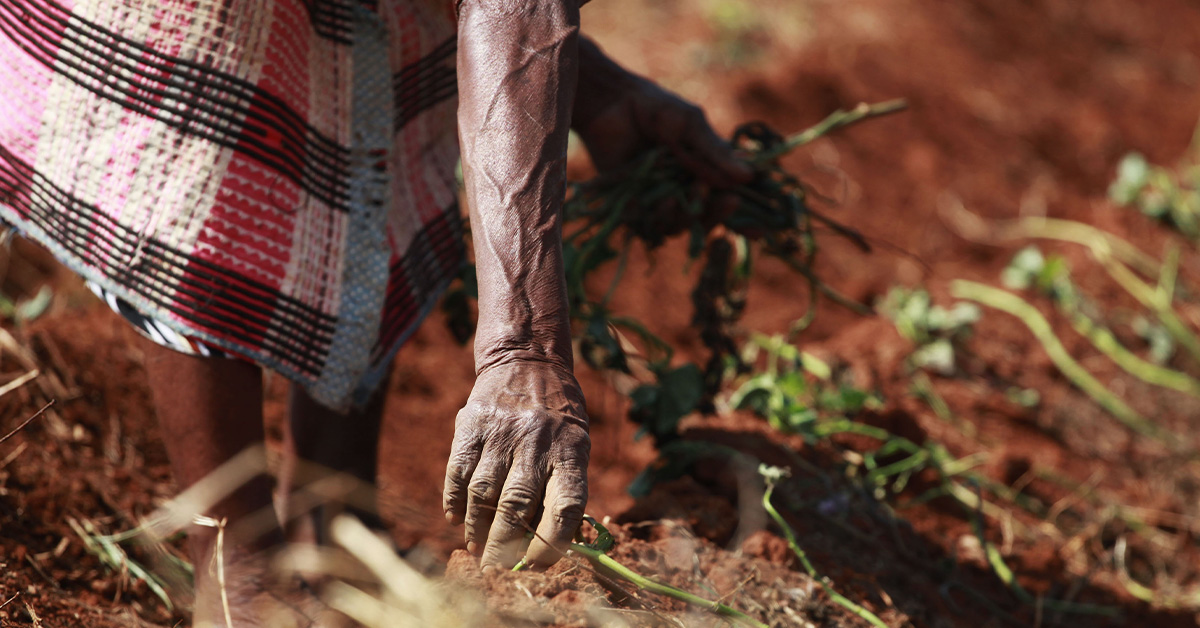
by Onsando Osiemo
The food security dilemma
Africa’s food security is ever worsening. According to the Food and Agriculture Organization (FAO):
“…nearly 282 million people in Africa (about 20 percent of the population) were undernourished in 2022, an increase of 57 million people since the COVID-19 pandemic began. About 868 million people were moderately or severely food-insecure and more than one-third of them – 342 million people – were severely food-insecure.1
What is food security?
The common definition of food security is that of the Rome Declaration on World Food Security from the World Food Summit (WFS) in 1996, as modified in 2001:
Food security [is] a situation that exists when all people, at all times, have physical, social and economic access to sufficient, safe and nutritious food that meets their dietary needs and food preferences for an active and healthy life.2
Hence, food security prevails when sufficient food: is available; there is access to it; it is well utilized; and there is stability over time of the three dimensions.3
Factors that contribute to food insecurity
The causes of food insecurity are many and varied. These range from immediate causes such as civil conflicts and insecurity – for example, the civil wars in Sudan, Ethiopia, Somalia – to climate shocks, like droughts and floods; and economic slowdowns and downturns.4 However, the main underlying cause of food insecurity is poverty and inadequate income, which results in lack of purchasing power for those in need of food.5
Food security and the WTO
Food and agriculture trade were first disciplined under the World Trade Organization (WTO) Agreement on Agriculture (AoA) which initiated a long-term process of trade liberalization in agriculture.6 The primary objective of the AoA is to reform the principles of, and disciplines on, agricultural policy as well as to reduce the distortions in agricultural trade caused by agricultural protectionism and domestic support. However, there is persistent contestation between food-exporting developed countries, which favour liberal markets and support for agricultural production and food-importing developing countries that advocate for measures to support their own food production and food security.7 Africa belongs to the latter group of countries. Africa is a net food importer and a majority of African countries are low-income food deficit countries.8
Food trade enhances food security and the liberalization of food trade minimizes distortions, in contrast to the costs associated with trade protection.9
Impact of the WTO AoA on Africa
In the WTO, developing countries, among them African countries, enjoy Special and Differential Treatment (SDT). Under SDT these countries are granted trade preferences by developed countries without reciprocity and they are also exempted or deferred from applicable WTO rules.10 Although many African countries had hopes that the AoA would assuage their food security concerns, Africa’s food security continues to worsen. By failing to reform their agricultural production and trade policies, African countries sabotaged the benefits of the reforms and liberalization of agriculture trade that was ushered in by the AoA. However, the African Union (AU) the Comprehensive Africa Agriculture Development Programme (CAADP) framework and the African Continental Free Trade Area (AfCFTA) provide hope that, with proper implementation, Africa may yet overcome its food security challenges.
1. FAO, AUC, ECA and WFP, Africa – Regional Overview of Food Security and Nutrition 2023: Statistics and trends. Accra, FAO. https://doi.org/10.4060/cc8743en FAO (2023).
2. FAO, Rome Declaration on World Food Security and World Food Summit Plan of Action, FAO (1996); FAO, Trade Reforms and Food Security: Conceptualizing the Linkages, FAO (2003).
3. OECD, Global Food Security: Challenges for the Food and Agricultural System, OECD Publishing (2013).
4. T. Bruck and M. d’Errico, ‘Food Security and Violent Conflict: Introduction to the Special Issue’, 119 World Development (2019)
5. A. Sen, Poverty and Famines: An Essay on Entitlement and Deprivation, Oxford University Press (1982), at 1-8.
6. M.Trebilcock and K. Pue, ‘The Puzzle of Agricultural Exceptionalism in International Trade Policy’, 18(2) Journal of International Economic Law (2015); M.E. Margulis, ‘The Forgotten History of Food Security in Multilateral Trade Negotiations’, 16(1) World Trade Review (2017); M. Fakhri, ‘A History of Food Security and Agriculture in International Trade Law, 1945-2017’, in J. Haskell and A. Rasulov (eds), New Voices and New Perspectives in International Economic Law, European Yearbook of International Economic Law, Springer,(2020) 55-90.
7. M. A. Aksoy, ‘Global Agricultural Trade Policies’, in M. A. Aksoy and J.C. Beghin (eds), Global Agricultural Trade and Developing Countries, World Bank (2005) 37-54; M.E. Margulis, ibid, at 45-48;
8. M. Rakotoarisoa, M. Iafrate, and M. Paschali, Why has Africa Become a Net Food Importer? Explaining Africa Agricultural and Food Trade Deficits, FAO (2012).
9. J. Clapp, Food Security and International Trade: Unpacking Disputed Narratives, FAO (2015), at 9-17.
10. B. Hoekman, ‘Developing Countries and the WTO Doha Round: Market Access, Rules and Differential Treatment’, in B. Guha-Khasnobis (ed.), The WTO, Developing Countries and the Doha Development Agenda, Prospects and Challenges for Trade-Led Growth, London, Palgrave Macmillan (2004)10-33, at 23.
Read the full article “A Bridge Too Far: Africa’s Food Security and the WTO Agreement on Agriculture“

About the African Journal of International and Comparative Law
The African Journal of International and Comparative Law provides invaluable scholarly material on law from a pan-African point of view. The journal includes articles on both public and private international law, either in English or French, as well as recent relevant to Africa.
Sign up for TOC alerts, subscribe to AJICL, recommend to your library, and information on how submit an article.
About the author
Dr. Onsando Osiemo is currently a legal practioner and researcher in Nairobi, Kenya. His areas of research are in international trade law and regional integration in Africa. He obtained his LLM and PhD degrees in international Law from the University of Amsterdam.





